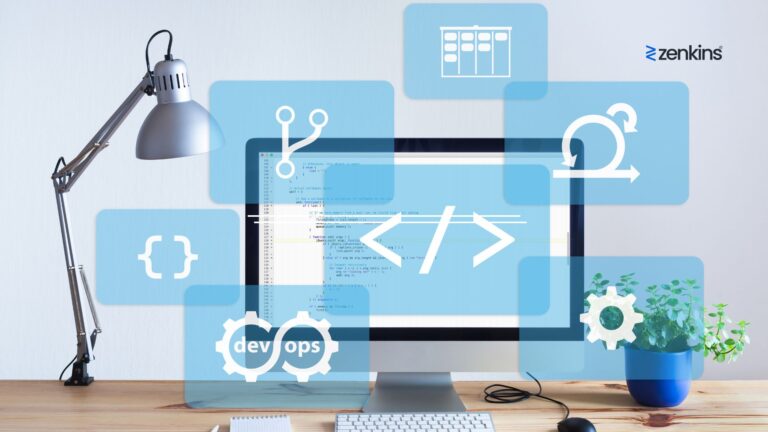Table of Contents
How Tech Startups in the USA Are Disrupting Industries in 2025
Introduction
The tech startup landscape in the USA continues to evolve, with 2025 marking yet another transformative year. Innovations in artificial intelligence, blockchain, cloud computing, and IoT are enabling startups to disrupt traditional industries, offering more efficient, scalable, and cost-effective solutions. These startups are not only redefining business models but also setting new standards for customer experiences, automation, and industry efficiency.
In this blog, we will explore how tech startups in the USA are disrupting various industries, the key technologies driving this change, and what businesses can learn from these emerging innovators.
Key Technologies Driving Disruption
Tech startups are leveraging advanced technologies to gain a competitive edge. Some of the most impactful innovations include:
1. Artificial Intelligence & Machine Learning
AI-driven startups are reshaping industries with intelligent automation, predictive analytics, and personalized user experiences. AI applications include:
- AI-driven chatbots and virtual assistants in customer service
- Predictive analytics in healthcare and finance
- AI-powered fraud detection in fintech
2. Blockchain & Decentralized Applications
Blockchain startups are improving security, transparency, and efficiency across industries. Key applications include:
- Secure and transparent transactions in finance
- Supply chain tracking for retail and manufacturing
- Decentralized identity verification and data security
3. Cloud Computing & SaaS (Software as a Service)
Cloud computing has enabled startups to offer cost-effective, scalable, and remote-friendly solutions. Some key areas include:
- Cloud-based ERP and CRM solutions for businesses
- Remote work collaboration platforms
- Scalable cloud storage and cybersecurity services
4. IoT & Smart Devices
The Internet of Things (IoT) is transforming industries with real-time data collection, automation, and smart connectivity. Applications include:
- Smart manufacturing and predictive maintenance
- IoT-driven healthcare monitoring
- Smart home and smart city infrastructure
5. Fintech & Embedded Finance
The rise of fintech startups has revolutionized digital payments, lending, and financial management. Innovations include:
- AI-driven financial advisory services
- Embedded payments in e-commerce and retail
- Decentralized finance (DeFi) platforms
Industry-Specific Disruptions by Tech Startups
1. Fintech: The Rise of Digital-First Financial Services
Fintech startups in the USA are transforming traditional banking, lending, and investment models by introducing:
- Neobanks that offer banking services without physical branches
- AI-driven credit scoring and loan approvals
- Automated investment platforms (robo-advisors)
- Cryptocurrency trading and decentralized finance (DeFi)
Example: Companies like Stripe and Square have streamlined digital payments, enabling small businesses to operate with ease.
2. Healthcare: AI and Telemedicine Revolution
Health tech startups are improving patient care with AI diagnostics, remote healthcare, and personalized medicine. Key trends include:
- AI-powered disease detection and medical imaging
- Telehealth solutions connecting doctors and patients
- Wearable devices for real-time health monitoring
- Blockchain for secure patient data management
Example: Startups like Teladoc Health are making healthcare more accessible through virtual consultations.
3. E-Commerce: AI-Powered Personalization & Automation
Tech startups are reshaping online shopping experiences with:
- AI-driven product recommendations
- Automated customer service chatbots
- Voice commerce and AR-driven shopping experiences
- On-demand and same-day delivery models
Example: Shopify and Instacart have revolutionized online selling and grocery shopping.
4. Education: The EdTech Boom
EdTech startups are making education more accessible and engaging with:
- AI-powered personalized learning paths
- Gamification of education
- Online coding and skill development platforms
- Virtual reality (VR) classrooms for immersive learning
Example: Coursera and Duolingo have made high-quality education accessible worldwide.
5. Automotive & Transportation: The EV and Mobility Revolution
Tech startups are redefining transportation with electric vehicles (EVs), autonomous driving, and mobility-as-a-service (MaaS). Innovations include:
- Self-driving cars and AI-powered navigation systems
- EV battery technology advancements
- Ride-sharing and subscription-based mobility services
Example: Companies like Rivian and Waymo are pushing the future of autonomous and electric mobility.
6. Real Estate & PropTech: Smart Homes & Digital Transactions
Real estate startups are making property transactions seamless with:
- AI-driven property valuation
- Blockchain-based real estate transactions
- Smart home technology integration
- Virtual property tours using AR/VR
Example: Zillow and Opendoor are changing how people buy and sell homes.
7. Manufacturing & Supply Chain: Industry 4.0 Innovations
Manufacturing startups are leveraging IoT, AI, and automation to enhance production efficiency and logistics. Innovations include:
- Predictive maintenance using IoT sensors
- AI-powered supply chain analytics
- Robotics and automation for smart factories
- Blockchain for transparent supply chain tracking
Example: Startups like Flexport are revolutionizing global trade logistics.
Challenges Faced by Tech Startups
Despite the rapid growth, tech startups face significant challenges, including:
- Regulatory Compliance: Navigating industry-specific regulations can be complex.
- Scalability Issues: Growing operations while maintaining efficiency is a hurdle.
- Funding Constraints: Raising capital for sustained growth remains a key challenge.
- Cybersecurity Risks: Protecting user data from cyber threats is critical.
How Enterprises Can Learn from Tech Startups
Large enterprises can take inspiration from tech startups by:
- Adopting Agile Methodologies for rapid innovation
- Leveraging AI and Automation to enhance operational efficiency
- Fostering a Culture of Innovation within teams
- Investing in Digital Transformation to stay competitive
Conclusion
Tech startups in the USA are driving industry-wide disruptions in 2025 through AI, blockchain, IoT, and other emerging technologies. From fintech and healthcare to retail and real estate, these startups are shaping the future of business. As industries adapt to these innovations, companies must embrace change, invest in technology, and foster a culture of continuous learning to remain competitive.
For businesses looking to partner with cutting-edge software development companies, Zenkins provides end-to-end software solutions tailored to your industry needs. Whether you are a startup or an established enterprise, our expertise in AI, cloud, and software development can help you stay ahead in this dynamic landscape.
Contact Zenkins today to explore innovative tech solutions for your business!




